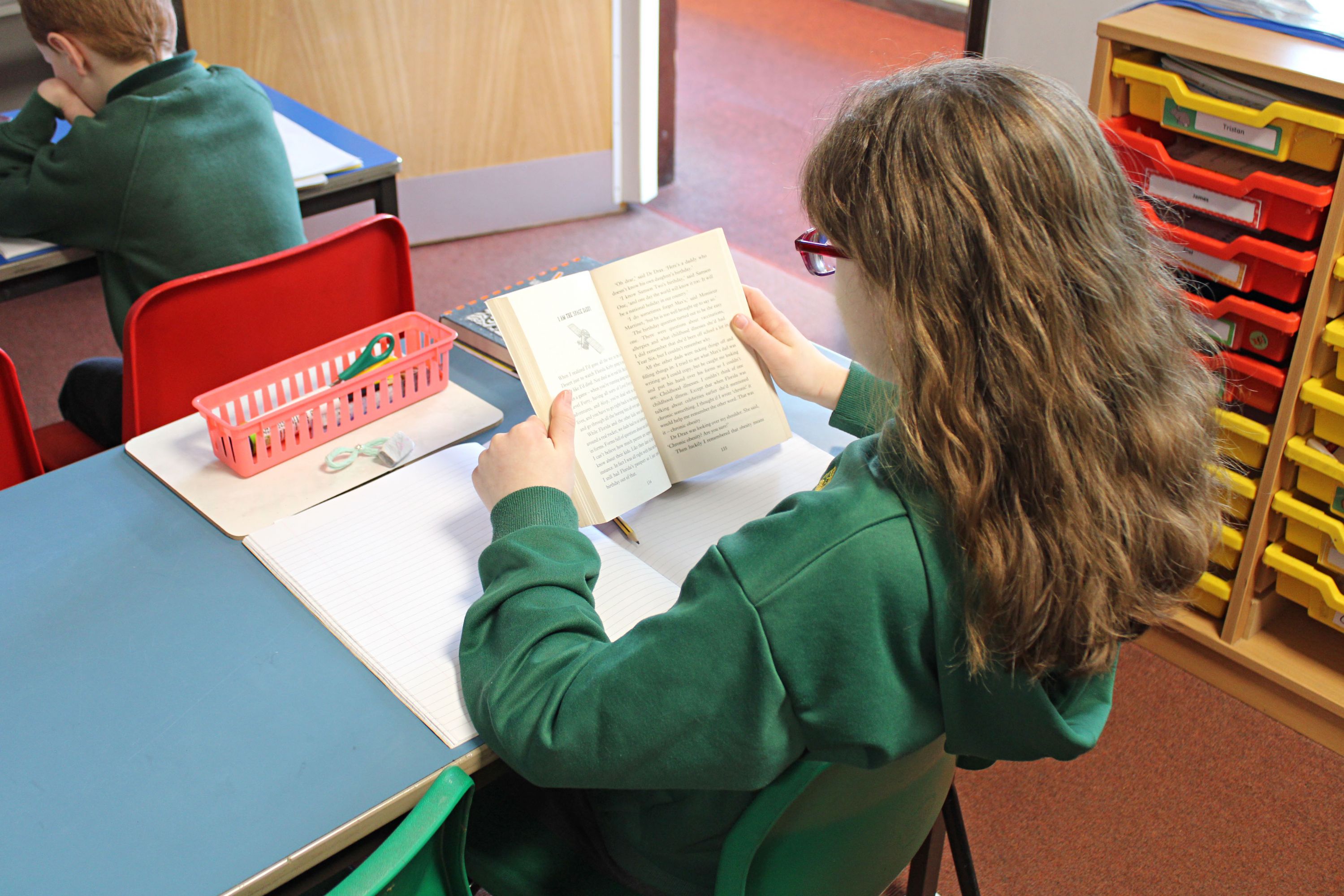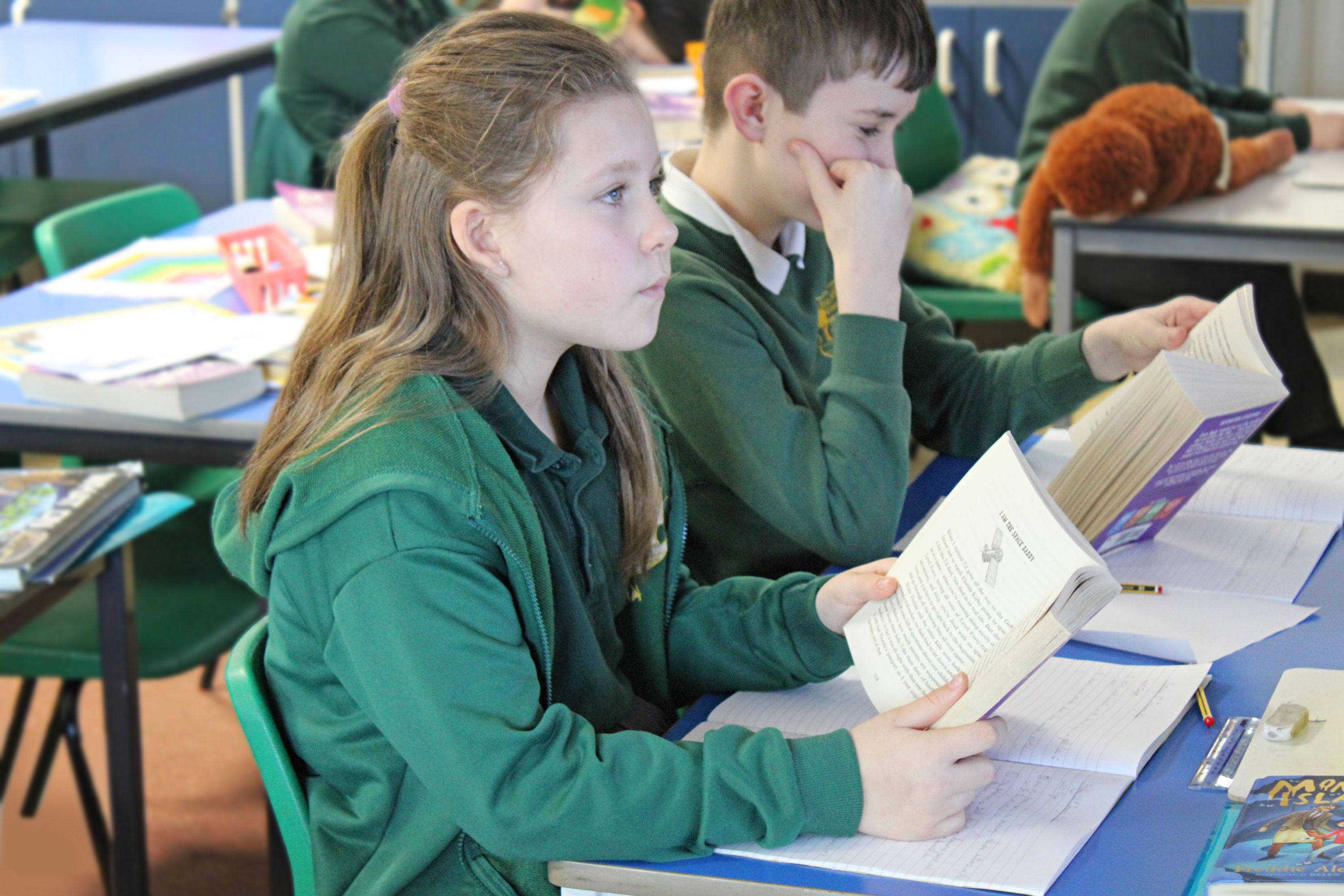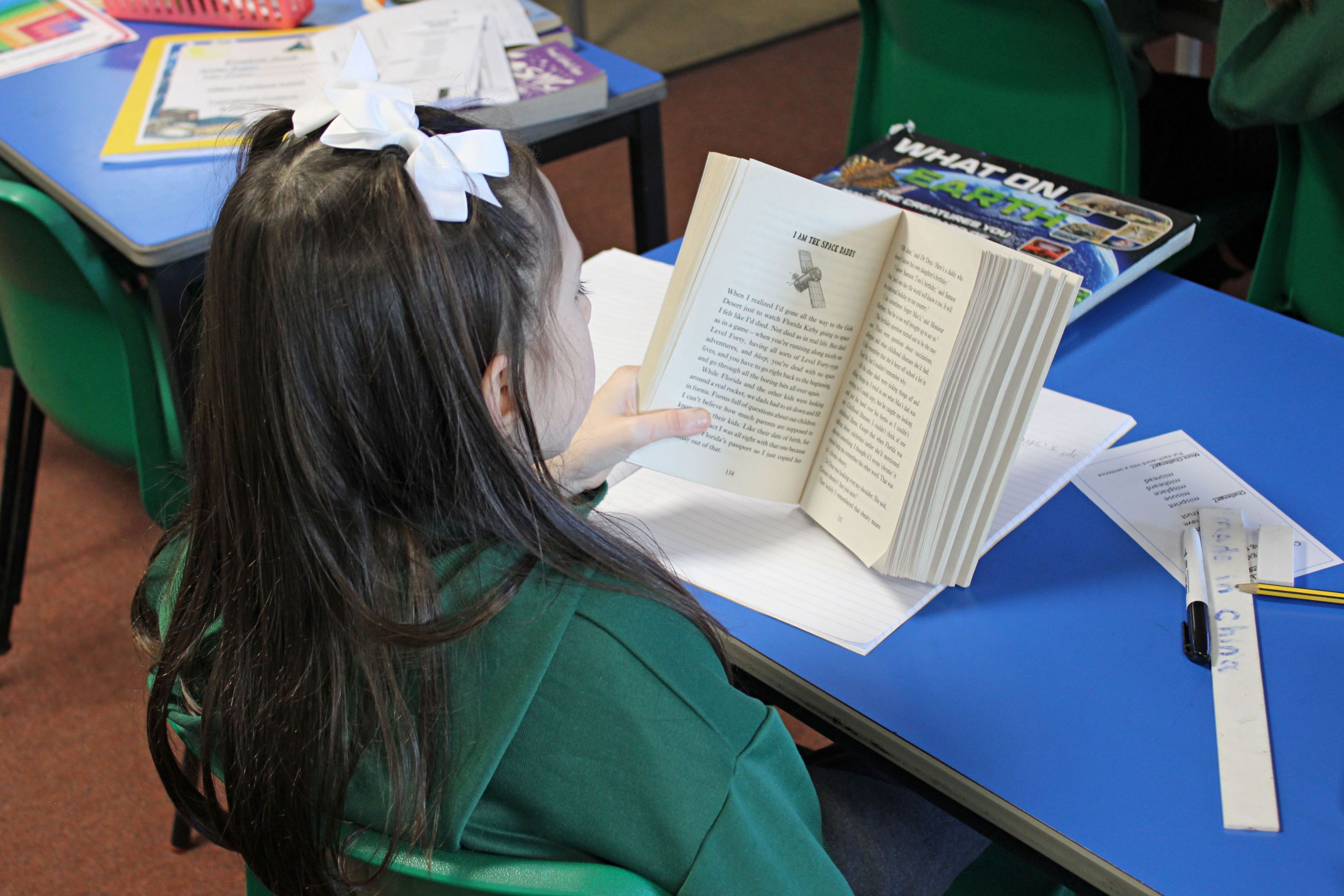English
Reading
“The whole world opened up to me when I learned to read”
Mary McCleod Bethune
Statement of Intent:
At Trewidland, we believe that the ability to read is a life-long, vitally important and pleasurable skill which is a priority for all our children. For this reason, reading is taught, practised and developed across the whole curriculum as well as being addressed in lessons where the key focus is specifically on teaching the children to read with fluency, accuracy and understanding. Our overarching ambition is that all our children will become enthusiastic, independent and reflective readers who enjoy reading and for whom it provides a key gateway to learning and to life. We focus upon vocabulary development within reading and across our curriculum.
Implementation:
So, how do we do this, and what are the principal measures we put in place to achieve this ambition?
- There is ample research evidence that the best way of launching children into reading is through phonics which is a system by which pupils learn the sounds associated with both individual letters and combinations of letters. We therefore start by building a secure phonics foundation through using the widely acclaimed Read Write Inc. (RWI) phonics system.
- We ensure that the pupils regularly read to us. This enables the staff including our teaching assistants, to support and review the progress of individual pupils and to encourage in every child a love of reading and literature.
- We ensure that there are regular opportunities for staff to develop and share best practice in the teaching of reading, and where appropriate, to benefit, for example, from contacts with other schools in the SMART Trust, Read Write Inc specialists and The Kernow English Hub.
- At Trewidland, parents play a key role in supporting the development of their child’s reading by regularly listening to them read and by engaging them in conversations about their understanding of their reading. This home-based element is a vital part of the learning process.
Please see our English overview below:

The Reader's Journey at Trewidland
EYFS – In the Early Years, we provide high-quality reading experiences that are essential in supporting our children in their journey to becoming competent readers. Our EYFS classroom has its own stimulating, well-resourced book area, which is accessible by children, as well as a wide range of resources and opportunities to apply reading skills, for example: name cards, alphabet mats, signs and labels and puppets and props to re-tell and act out stories. Using the Read Write Inc. phonics scheme we deliver high-quality, small group phonics sessions specifically tailored to the individual needs of each child. The children are taught a new sound each day which they then apply to reading in words and to writing them too. Children in EYFS take home two reading books to engage parental support at home. One is a RWI reading book which is matched carefully to their ability. The children have already used this in the week with their reading teacher at school and the second book is a “free-choice” book that they will have chosen themselves or with some adult guidance where appropriate.
The children throughout EYFS and KS1 have home/reading diaries which parents are shown how to complete.
Year 1 The children’s reading journey through Year 1 is carefully planned to ensure that all children are given the opportunity to make excellent progress and become confident, independent readers who are developing a love of books. The children will continue their phonics RWI sessions in small groups revising earlier sounds previously taught and learning new trickier ones. These sounds are then matched to the books they read in their English lessons when they discuss the stories in detail and write about different aspects of them.
Year 2 – The children are now well on their way to becoming independent readers. Their confidence and reading ability is growing and, as such, once they have completed the RWI phonics scheme, they can then choose their own home/school reading book. The children choose these books from an age-appropriate book from the school library.
Key Stage Two Whole Class Reading in which children are not divided into reading ability groups provides an opportunity for children of all attainment bands to be immersed together in the same high-quality literature and the discussions that these promote. Children benefit by encountering a wide range of views and opinions. During these lessons children read a range of texts including fiction, non-fiction and poems. Each lesson contains a retrieval and vocabulary element to build children’s basic understanding of text and to increase their vocabulary.
Children also have time daily to read independently a book of their choice to support fluency development and a love of reading.
Peer Reading
Peer reading is very successful at Trewidland and a very special time in our community where are mixed ages work so well together. Children can support each other and share their love of reading together. This takes place weekly.
Top 50 Reads - see link page for recommended reads ordered by age group.
How do we meet the needs of children requiring extra support?
Our motto here at Trewidland is in line with that of RWI – “Keep up, not catch up!”. As such, we run, for example, 1-1 tuition sessions for those children who need to “keep-up” with their learning and blending of sounds. These are led by a RWI-trained Teaching Assistant.
How do we assess reading?
Our reading assessments take many different forms so as to provide us with an accurate and well-rounded picture of each child’s reading ability, vocabulary and love of books. Children take part in termly PIRA assessments which provide teachers with further information about the children’s reading used to inform future whole class reading lesson plans. The careful tracking of RWI assessments takes place every half-term to ensure children's books and reading teaching is carefully matched to their ability.
Further informal assessments and information are taken from child/teacher discussions in “Reading for Pleasure” time, notes and information from the children’s reading diaries in KS1, whole-class reading lessons and national and school-based phonics assessments (where appropriate). Using a variety of indicators in this way enables us to obtain a balanced judgement of each child’s reading ability and progress enabling us to identify the next steps in their learning journey.
Useful Links:
What is phonics? Understanding Phonics - Information for Parents
Phonics presentation for parents – (this is currently on the Reception Class page.)
How to say the sounds - Information for Parents
The Year 1 Phonics screening Check - Information for Parents
Ten top tips for reading with your child at home - Information for Parents
Top tips to support your child's reading - BBC Bitesize
Writing at Trewidland
We have adapted Literacy Tree Planning to our school structure & setting.
What is Literacy Tree?
Literacy Tree is a complete, book-based platform for primary schools that covers all requirements of the Primary English curriculum. It can be used as a complete scheme of work or adopted and adapted to suit the needs of your school, academy or trust. The books we choose help children to grow ideas and expand their minds. We only choose significant and important children's literature to create our book-based resources.
It starts at the roots. We provide book-based planning sequences, Writing Roots, which embed complete curriculum coverage and engage children to write with clear audience and purpose. Our Teach Through a Text pedagogy is the backbone of each sequence. At Trewidland, we scaffold and challenge all children in our mixed age classes to maximise progress.
Spelling and Handwriting
EYFS and Key Stage 1 - Spellings are matched to phonics progress using the Read Write Inc. (RWI) programme, so that children are given opportunities to spell words with the sounds that they are learning. This will help to develop their confidence by using them. Handwriting is taught using the RWI Handwriting programme.
Key Stage 2–We have a rolling programme of spellings for our KS2 class. These are drawn from the statutory spellings provided in the National Curriculum and children have opportunities to learn. They are tested on a weekly basis and have opportunities to practise these in class. Handwriting is taught using the RWI Handwriting programme and children have the opportunity to practice regularly.
Impact
Due to the small numbers at Trewidland, we are unable to publish data.


